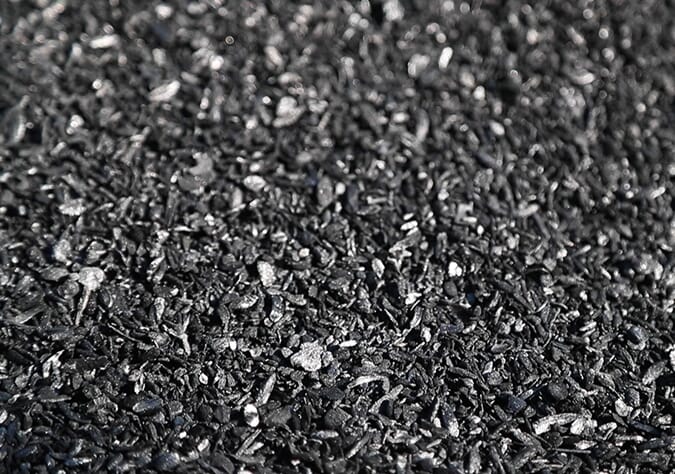Your mini basket



In the verdant world of gardening and sustainable agriculture, a revolution is quietly taking root, heralded by the whispers of leaves and the steady growth of plants. This revolution comes in the form of biochar, an ancient yet remarkably innovative substance that is capturing the attention of gardeners, environmentalists, and scientists alike. As we delve into the depths of soil health and plant vitality, the Royal Horticultural Society’s recent move to incorporate biochar into its seminars and lectures speaks volumes about its burgeoning importance. But why biochar, and why now? Let’s dig deeper into this carbon-rich material and uncover its potential to reshape our urban landscapes and contribute to biodiversity net gain in citycentres.
What is Biochar?
Biochar is a lightweight, black residue, resulting from the pyrolysis of organic materials in an oxygen-limited environment. This process, essentially a form of thermal decomposition, transforms plant matter into a stable form of carbon, resistant to the usual decay that releases carbon dioxide back into the atmosphere. The result is a porous and highly absorbent material that can improve soil health, water retention, and nutrient efficiency.
The Importance of Purity in Biochar
With biochar’s growing popularity comes a crucial caveat: not all biochar is created equal. The market’s expansion has seen an influx of products, but discerning gardeners and environmentalists are turning towards credible brands like Carbon Gold for their biochar needs. The reason is purity. Inferior biochar can contain metals and other contaminants that do more harm than good. Carbon Gold stands out by offering biochar of the purest quality, ensuring that its application is beneficial rather than detrimental.
Biochar in Urban Environments
The application of biochar extends beyond the traditional garden or farm. In urban environments, where space is at a premium and biodiversity is under constant threat, biochar can play a pivotal role in maintaining green spaces and ensuring the health of city trees. Trees in urban areas face numerous challenges, from pollution to compacted soils, which biochar can help mitigate. By improving soil structure and fertility, biochar supports tree health and longevity, reducing the need for costly and disruptive replacements.
Biodiversity Net Gain and Biochar
The concept of biodiversity net gain has gained traction in recent years, emphasising the need to leave the natural environment in a measurably better state than before development occurred. Biochar contributes to this goal by enhancing soil health and supporting diverse microbial communities, which are crucial for a thriving ecosystem. In city centres, where every square inch of green space counts, biochar can ensure that existing trees and plants not only survive but flourish, contributing to urban biodiversity and the well-being of city dwellers.
The Royal Horticultural Society’s Endorsement
The Royal Horticultural Society’s (RHS) decision to highlight biochar in its educational programs is a testament to its potential. By incorporating biochar into its seminars and lectures, the RHS is not just promoting a product; it’s championing a sustainable practice that has the power to transform gardening and urban landscaping. This endorsement by a venerable institution underscores biochar’s relevance and efficacy in modern horticulture.
The Future of Biochar
As we look towards the future, biochar stands out as a beacon of hope for sustainable agriculture and urban landscaping. Its ability to sequester carbon, improve soil health, and support biodiversity makes it an invaluable ally in the fight against climate change and urban decay. The journey of biochar, from ancient Amazonian fields to modern city parks, is a testament to humanity’s enduring quest for harmony with nature.
In conclusion, biochar is not just another gardening trend. It’s a movement towards a more sustainable and resilient future, where urban and rural landscapes thrive side by side. The Royal Horticultural Society’s embrace of biochar, coupled with the advocacy for pure, high-quality products like those offered by Carbon Gold, signals a shift in how we approach the stewardship of our environment. As gardeners, environmentalists, and citizens of this planet, it’s our responsibility to nurture this spark of change and watch as it grows into a flame that illuminates the path towards a greener, more vibrant world.
